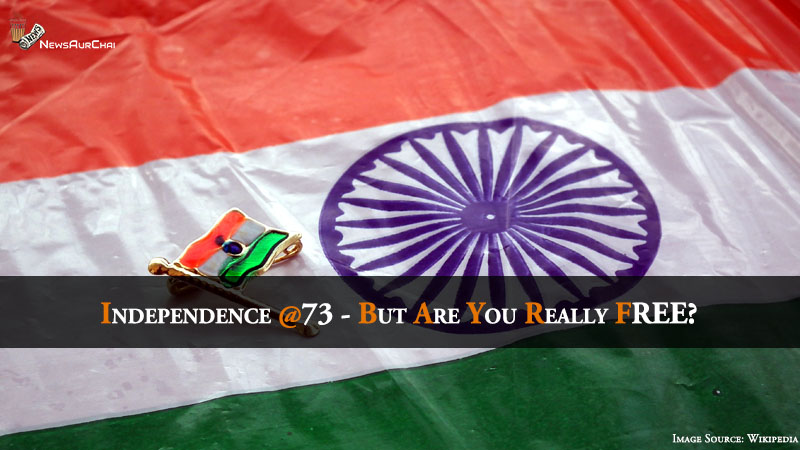
The remarkable journey of 72 years of independence, India has entered towards the 73rd year of being an INDEPENDENT COUNTRY. On August 15, 1947, India got the freedom from the colonial rule of Britishers and established a new journey of free India. The day and night sacrifices of lakhs of Freedom fighters, thousands of non-violent protests and commissions led India to a path of being a free and independent nation. A nation free of any dominance, a country with federal secular sovereign republic democracy.
How India Celebrates it’s Independence Day?
Independence Day is celebrated with flag hoisting ceremony, Flying Kites & the singing of national anthem together. The prime minister participates in flag hoisting ceremony at the Red Fort in the National capital Delhi, a parade of members of the armed forces and police are assembled. The prime minister delivers the speech to the nation and acknowledges the remarkable achievement of the country in the previous years.
What exactly Independence Days means?
It is that time of the year again when suddenly the hidden patriotism of every countryman lit up which was latent somewhere. A time zone wherein 52-second national anthem chants bring a feel of free India in every Indian’s soul. As you sit down, ask this question to yourself once, Are you, as an employee, independent at your workplace? Are you, as a civilian independent and responsible for your duty towards the nation? Are you, as an individual contributing something in your personal as well as professional life that you should get the chance to celebrate Independence Day?
You as an Individual can very well use this grand opportunity to free yourself as well as people around you from imperialistic control. Let them know about the power of being an independent democratic nation’s civilian.
Let’s correlate our seven fundamental rights as seven primary duties towards our nation to make it the country our freedom fighters dreamt.
- Right to Equality: It prohibits discrimination on the grounds only of religion, race, caste, sex, place of birth, or any of them. Ask and look around yourself, are we following this Right? Right to equality is there in the constitution, but following it in our life is our duty. Instead of being vocal about it, we should try applying it in our daily life.
- Right to Freedom: It includes the freedom of speech and expression, freedom of assembly without arms, freedom of association, freedom of movement throughout the territory of our country, freedom to reside and settle in any part of the State of India and the freedom to practice any profession. However, what about the freedom from the western mindset, companies and their dominance? Being free from British colonial rule, we are still their slave in almost every area. Asking for the civilian’s freedom, but what about the freedom of our country?
- Right to Freedom of Religion: This provides religious liberty to all citizens and ensures a secular state in India. Yes, now let’s come to the fundamental part of our nations SECULARISM. Where did it originate? Do we believe in this? Secularism on one side and hypocrisy on another, is it like that? Right to freedom of religion is for everyone irrespective of what religion they belong. If I am a Hindu, I am free to chant or not to chant JAI SHRI RAM. If I am a Muslim, it is my wish to pray in mosque or not. That is what this Right preaches, but what does secular Indian’s do? Lynching on not chanting god’s name, killing innocent animals to prove their religion is right, wasting millions of money to show so-called idolatress belief. Wake up; faith makes you; you don’t make religion. So try to be a better version of your religion.
- Right Against Exploitation: This Right lays down specific provisions to prevent exploitation of the weaker sections of the society by individuals or the State. It not only talks regarding the exploitation of human beings, furthermore the exploitation of the nation by its citizens. We campaign, we protest, and even we do riots for standing against exploitation, but what about the exploitation we are doing towards our country? By doing corruption, ruining our environment, by not doing our fundamental duties, aren’t we not exploiting our nation? The constitution prohibits human exploitation. As citizens, it is our responsibility to prevent other kinds of exploitations.
- Cultural and Educational Right: This intent to protect the rights of cultural, linguistic and religious minorities, by enabling them to conserve their heritage without any discrimination. It also says about the right of minorities to establish and administer educational institution of their choice. Preserve our culture; national heritage is emphasised here, and not about the wealth. What we are protecting is not the heritage of 72 years of free India, but the thing we earned in the last 3-4 successful years of our life. What kind of sustainability are we addressing?
- Right to constitutional remedies: The Right to Constitutional Remedies empowers citizens to approach the Supreme Court of India to seek enforcement, or protection against infringement, of their Fundamental Rights. For our security, we have a constitution, but what about the protection of our constitution, and nation?
https://youtu.be/xFB3pAhWwkc
Rights are there for us but think about the duties too. Whenever you think about these fundamental rights in the future, try to relate it with your fundamental responsibilities towards the nation. We have completed 72 years of independence. Let’s make the coming years countable for the INCREDIBLE INDIA and proudly and loudly accolade JAI HIND.
“आज़ादी का सही मतलब जब समझ में आजाए यारा,
तब सीना ठोक के कहना प्यारे, सारे जहान से अच्छा हिन्दुस्तान हमारा! ” – Piyush Mishra





